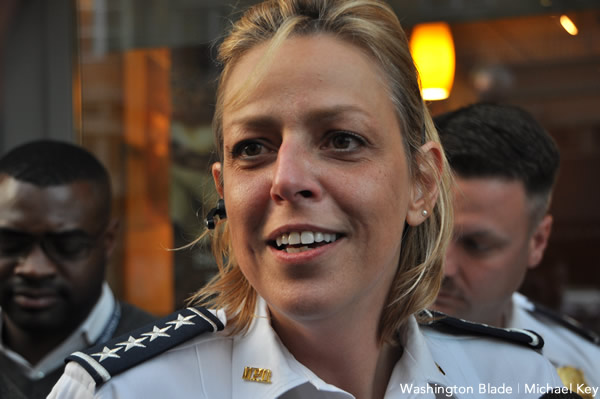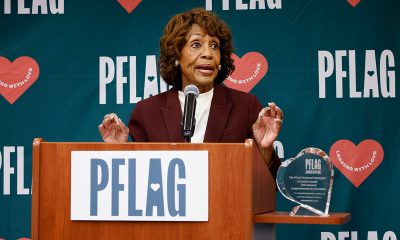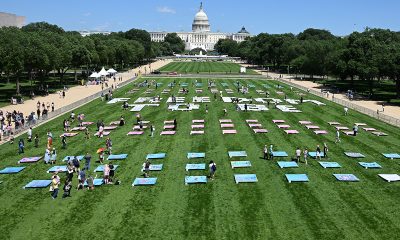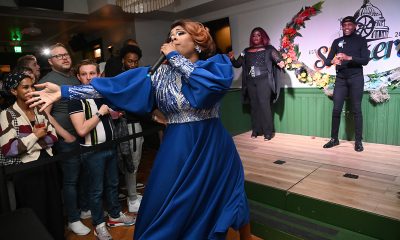Local
D.C. murders down, anti-LGBT hate crimes up
Preliminary data show hate crimes based on sexual orientation rose 19% in 2012
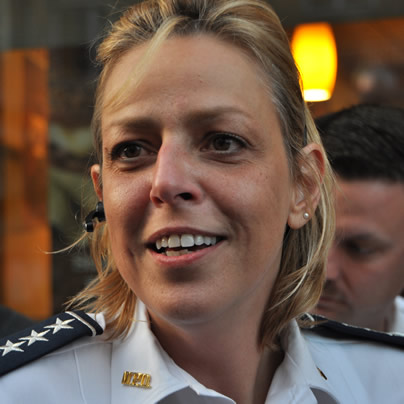
D.C. Mayor Vincent Gray and District Police Chief Cathy Lanier announced at a news conference on Thursday that the 88 homicides reported in the city in 2012 represent the lowest number of slayings within the city in 50 years.
Lanier noted that while robberies and sexual assaults increased in 2012, violent crimes made up just 19.6 percent of the total number of crimes, with “property crime” making up 84.4 percent of the total number of reported crimes in 2012.
Lanier didn’t include statistics on hate crimes in a crime data presentation she gave at the news conference. But preliminary data on hate crimes posted on the D.C. police website this week show hate crimes targeting victims based on their sexual orientation increased 19 percent, from 37 between January and November of 2011 to 44 between January and November of 2012.
The data show the number of hate crimes against transgender residents increased from 8 to 9 in the same 11-month period from 2011 to 2012, representing a 13 percent hike.
Police officials said hate crime data for December 2012 was being tabulated and would be released at a later date.
The total number of reported hate crimes in 2011 (from January through December) was 42 for the “sexual orientation” category and 11 for the category of “gender identity/expression,” according to the data shown on the police website.
The preliminary, 11-month figures for 2012 show that the city recorded a total of 78 hate crimes for each of the categories of victims – sexual orientation, gender identity/expression, ethnicity/national origin, race, religion, disability, political affiliation, and homelessness.
Of that total of 78, hate crimes targeting a victim because of his or her sexual orientation (44) comprised 56.4 percent of the total, the highest of all the categories. Race related hate crimes (12) came in second, at 15.3 percent, with gender identity and expression (9) coming in third, making up 11.6 percent of all reported hate crimes in D.C.
Hate crimes based on a victim’s religion (6) made up 7.7 percent of the 11-month total in 2012. Just one hate crime was reported so far in 2012 for each of the categories of disability and political affiliation. None was reported for the homelessness category in the 11-month period of 2012.
In his remarks at Thursday’s news conference, Gray said he was hopeful that his Project Empowerment program that provides job training for unemployed transgender people would lower the number of anti-trans hate crimes.
Transgender activists have said some of those participating in the job training program were forced to engage in street prostitution to survive prior to entering the program.
“If we can take some of the sense of need from people who feel like the only way they can survive is by engaging in street activity, the sale of sex, if you will – I think that’s going to reduce some of the hate crimes also because it’s not going to make people as vulnerable as they might have been,” Gray said.
“We’ve got a program started now…to try to improve the understanding of people who are transgender,” he said. “So I think in addition to working at it from a law enforcement perspective, we also need to work on it from the perspective of how we improve the conditions under which people who are transgender, for example, are living.”
Although the hate crime data for December 2012 have yet to be released, preliminary reports on the activities of the department’s Gay and Lesbian Liaison Unit show at least three possible anti-LGBT hate crimes took place in December.
Officials with the local group Gays and Lesbians Opposing Violence (GLOV) have said they believe the actual number of anti-LGBT hate crimes is significantly greater than the number reported because some LGBT victims choose not to report hate crimes.
Activists say some hate crime victims report the crime as an assault without informing police they were targeted for their sexual orientation or gender identity. In other cases, according to GLOV, a police officer many not recognize an assault or other crime as a hate crime and doesn’t record it as such on a police report.
Just one LGBT related murder took place in 2012 — the February 2012 stabbing death of transgender woman Deoni Jones, 23, at a bus stop in Northeast D.C. Police arrested District resident Gary Niles Montgomery, 55, for the crime less than two weeks later. Montgomery has since been indicted on first-degree murder while armed and is being held in jail while he awaits trial.
Police have listed the motive of the slaying as robbery rather than a hate crime.
Transcript follows:
Blade: Chief, can you say a little about hate crimes and where they fit into the overall crime statistics you presented today? Are they going up or down?
Chief Lanier: I don’t have any hate crime statistics with me. I’ll get them for you. We were staying pretty much even across the board for hate crimes. We did have some increases in different categories. But I have to get back to you with the specific categories. I’ll get it for you.
Mayor Gray: I think, Lou, if I could add a facet to that. I think you know that we worked hard to try to create a greater acceptance of people who are transgender, who often times are the victims of hate crimes in the District of Columbia. And if we can take some of the sense of need from people who feel like the only way they can survive is by engaging in street activity, the sale of sex, if you will — I think that’s going to reduce some of the hate crimes also because it’s not going to make people as vulnerable as they might have been.
We had a very successful year with our transgender efforts in the last 12 to 15 months. We had three cohorts to go through the Department of Employment Service’s Project Empowerment. We were able to get people jobs. We got a campaign started now, as I think you know, to try to improve the understanding of people who are transgender. So I think in addition to working at it from a law enforcement perspective, we also need to work on it from the perspective of how we improve the conditions under which people who are transgender, for example, are living.
“While we congratulate MPD and the city of Washington in reaching the lowest level of overall homicides in 50 years, the anti-LGBT violence numbers are still going up at an alarming rate and need to be addressed,” said A.J. Singletary, chair of GLOV.
“Even though the low homicide rate was the big story of the day, Chief Lanier rightly included data on other categories of crime” in her presentation at the news conference, Singletary said. “Hate crimes should have been included for comparison purposes as well. While the LGBT community is acutely aware of the violence we face on a daily basis in Washington, other citizens of D.C. as well as the mainstream media often aren’t aware of this large and seemingly ever-growing problem,” he said.
District of Columbia
New LGBTQ bar Rush set to debut this weekend
14th & U picks up a queer lounge, dance spot with a tech focus
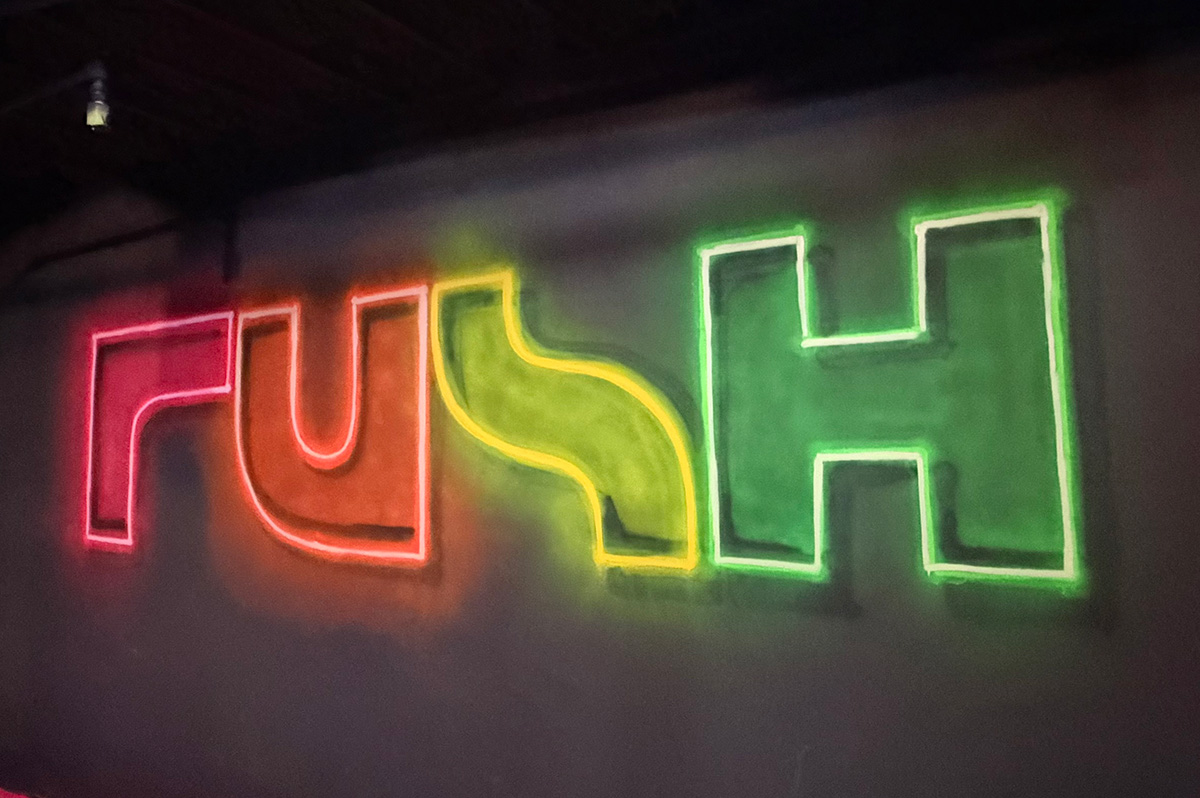
The LGBTQ nightlife hotbed at 14th and U is about to get another member. Rush, a bar years in the making, is set to open its doors this week.
Filling the hole left by Lost Society, Rush will be a tech-forward, two-story bar featuring fully integrated light and sound to deliver “an immersive experience,” according to owner Jackson Mosley.
Mosley began conceptualizing such a bar back in 2017. His career linking tech and hospitality stretches even further back, beginning his career at LivingSocial and Uber. And even before that, he moonlighted at Town during his college years, where he developed a passion for drag and LGBTQ nightlife.
Rush is this manifestation of both tech and nightlife coming to fruition, but it hasn’t been without setbacks. Mosley originally planned to open farther east, on 9th and U streets, but received pushback from the building in which it was supposed to be housed. “It was the universe telling me it wasn’t the right spot,” he says. Earlier this year, coming across the Lost Society vacancy, Mosley finally found his host. As the center of LGBTQ nightlife has shifted to 14th Street – as reinforced by this week’s Shakers shuttering – Mosley was eager to join the festive fray.
Rush is in the same building as Bunker, settling on the top two levels of the structure. Across a flexible, indoor-outdoor combination and 6.000 square feet, Rush entirely shakes up its two floors – “a real reimagining so that it feels entirely new,” he says, with new equipment and a new vision and a capacity of at least 300.
The lower floor leans into a lounge vibe. Relaxed seating and a huge bar dominate the area. It will feature a sound booth, furniture with built-in lighting, and plenty of places to chat.
Upstairs is the club, dance-forward space. It has a “proper drag stage,” Mosley says, one of the largest among fellow LGBTQ bars, at 7.5 feet deep by 22 feet wide. Set up for live performances and painted in matte black, this rooftop level can open the doors to the deck allowing the entire level to participate in performances.
Rush will also boast a full kitchen, distinct from many other LGBTQ bars. Set to start serving in a couple of months, it will serve a large menu of bar food and more, as well as a lively brunch on the rooftop.
“It’s long overdue to have a brunch with good food at a bar,” he says.
Mosley emphasizes sound and lighting as part of his tech focus. Dropping more than $150,000 on this multi-sensory experience, he realized his “life dream to build out a sound system I love,” he says. “Enough lighting to power Echostage,” he joked. Lasers, hazers, smoke machines, and CO2 cannons are just a few elements. “One piece lacking at a drag show has been integrated light and sound with the performers’ choreo,” he says, like when a queen performs a death drop, there should be a light and sound crescendo.
Rush also differentiates itself with its unique business model. All Rush employees are full-time exempt with benefits like healthcare and PTO. Mosley takes up the CEO position of his firm Momentux, which will operate Rush. Mosley envisions growth to open Rush locations in other cities along the same model. Patrons will swipe their credit cards at the door, reducing the number of swipes for bar staff (and reducing credit card fees), and wear wristbands to track purchases. The approach negates the need – and request – for tips. Service charges will only be levied when patrons don’t close their tabs. “I’m rethinking the role of staff, down to the barback,” he says.
As for what the staff will pour, Rush will slowly roll out an eclectic, cheeky signature cocktail list to be served beyond the usual vodka-sodas. Such drinks might include the “14th & Unhinged,” with tequila, mezcal, tamarind, and lime; the “Power Vers,” with gin, elderflower, lemon, and pink peppercorn foam; and the “Flight Attendant,” which comes with a spread based on the ever-popular in-flight cookie, Biscoff.
The bar’s opening is set for Saturday Nov. 22, with a promising lineup — popular DJ Sidekick, and a trio of local drag favorites: Cake Pop, Druex Sidora, and Mari Con Carne. A social media post promised “good energy, controlled chaos, and hot strangers.”
Rush, says Mosley, might be like “if Taylor Swift and Lady Gaga had a baby, plus drag queens,” he says.
Local
Most D.C.-area cities receive highest score in HRC Equality Index
‘Record breaking’ 132 jurisdictions nationwide receive top ranking
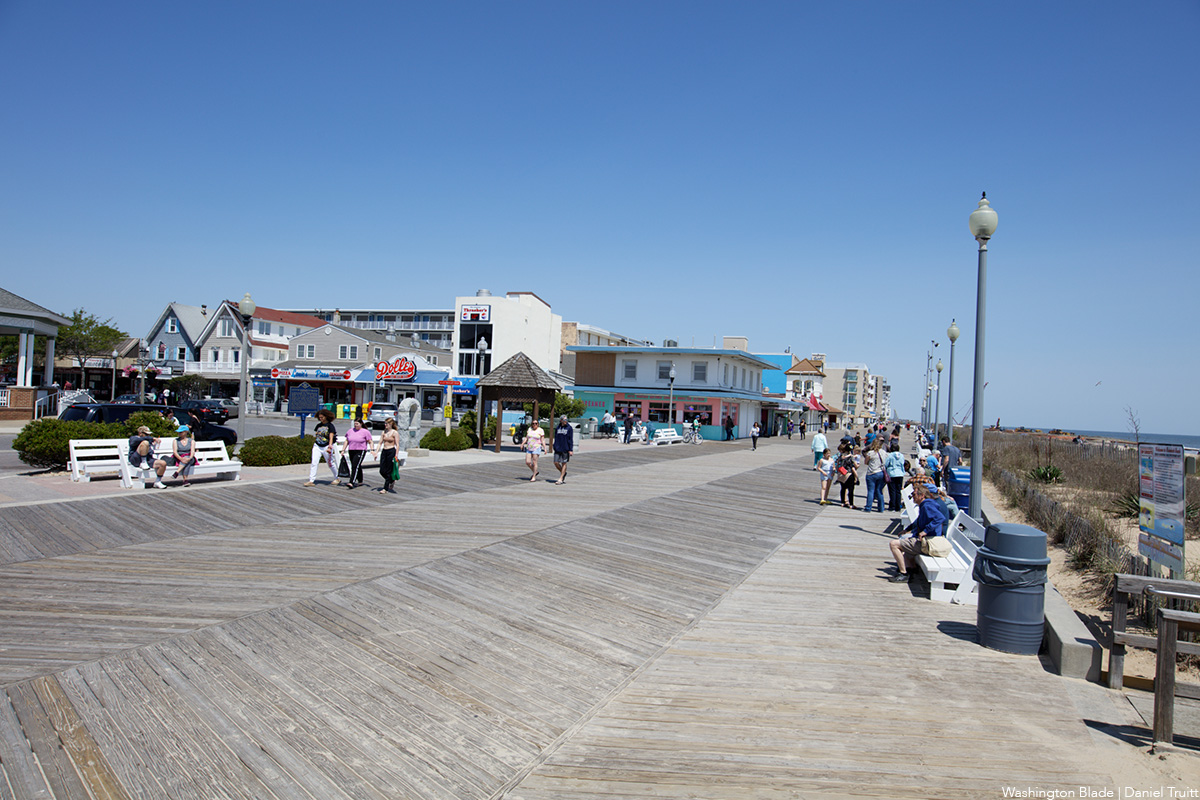
The Human Rights Campaign Foundation on Nov. 18 released its 14th annual Municipal Equality Index report showing that a record number of 132 cities across the country, including nine in Virginia and seven in Maryland, received the highest score of 100 for their level of support for LGBTQ equality through laws, policies, and services.
Among the D.C.-area cities and municipalities receiving a perfect score of 100 were Alexandria, Arlington County, Fairfax County in Virginia and College Park, Bowie, Gaithersburg and Rockville in Maryland.
The city of Rehoboth Beach is listed as the only city or municipality in Delaware to receive a score of 100. Rehoboth city officials released a statement hailing the high score as a major achievement over the previous year’s score of 61, saying the improvement came through a partnership with the local LGBTQ advocacy and services group CAMP Rehoboth.
The HRC Foundation, which serves as the educational arm of the Human Rights Campaign, the nation’s largest LGBTQ advocacy organization, includes the District of Columbia in a separate State Equality Index rating system under the premise that D.C. should be treated as a state and receive full statehood status.
In its 2024 State Equality Index report, D.C. and 21 states, including Maryland, Virginia, and Delaware, were placed in the “highest rated category” called Working Toward Innovative Equality, which does not use a numerical score.
“The 2025 MEI shows a record breaking 132 cities scoring the highest possible marks on the index, representing a combined population of approximately 49 million people,” the HRC Foundation said in a statement announcing the 2025 report.
“This high-water mark is critical as pressure continues from states that pass laws and policies that seek to shut transgender people – particularly trans youth – out of public life,” the statement continues. It adds that many cities that have put in place trans supportive laws and policies, including health insurance benefits, “are in many cases no longer able to provide that coverage in a meaningful way as a result of discriminatory decisions made by state legislatures.”
The statement goes on to say, “However, more cities than ever are doing what the MEI characterizes as ‘testing the limits of restrictive state laws’ – pushing back against various checks on municipal power or discriminatory state laws – with nearly 70 cities doing so.”
The HRC statement notes that this year’s Municipal Equality Index rated a total of 506 cities. It says that number includes the 50 state capitals, the 200 largest cities in the U.S., the five largest cities or municipalities in each state, the cities that are home to the state’s two largest universities, and the 75 cities or municipalities that have high proportions of same-sex couples.
The report shows this year’s index rated 11 cities or municipalities in Virginia with the following rating scores: Alexandria, 100; Arlington County,100; Fairfax County, 100, Richmond, 100; Charlottesville, 100; Chesapeake, 80; Hampton, 100; Newport News, 100; Norfolk, 91, Roanoke, 100, and Virginia Beach, 100.
In Maryland a total of 10 cities were rated: Annapolis, 100; Baltimore, 100; Bowie, 68; College Park, 100; Columbia, 100; Frederick, 100; Gaithersburg, 100; Hagerstown, 75; Rockville, 100 and Towson in Baltimore County, 85.
A total of eight cities were rated in Delaware: Rehoboth Beach, 100; Bethany Beach, 51; Milford, 83; Dover, 69; Wilmington, 76; Newark, 72; Smyrna, 59; and Middletown, 64.
The full 2025 HRC Foundation Equality Index Report can be accessed at hrc.org.
Virginia
Repealing marriage amendment among Va. House Democrats’ 2026 legislative priorities
Voters approved Marshall-Newman Amendment in 2006

Democrats in the Virginia House of Delegates on Monday announced passage of a resolution that seeks to repeal a state constitutional amendment that defines marriage as between a man and a woman is among their 2026 legislative priorities.
State Del. Mark Sickles (D-Fairfax County) has introduced the resolution in the chamber. State Sen. Adam Ebbin (D-Alexandria) is the sponsor of an identical proposal in the state Senate.
Both men are gay.
Voters approved the Marshall-Newman Amendment in 2006.
Same-sex couples have been able to legally marry in Virginia since 2014. Republican Gov. Glenn Youngkin last year signed a bill that codified marriage equality in state law.
A resolution that seeks to repeal the Marshall-Newman Amendment passed in the General Assembly in 2021. The resolution passed again this year.
Two successive legislatures must approve the resolution before it can go to the ballot.
Democrats on Election Day increased their majority in the House of Delegates. Their three statewide candidates — Gov.-elect Abigail Spanberger, Lt. Gov.-elect Ghazala Hashmi, and Attorney General-elect Jay Jones — will take office in January.
“Virginians elected the largest House Democratic Majority in nearly four decades because they trust us to fight for them and deliver real results,” said House Speaker Don Scott (D-Portsmouth) on Monday in a press release that announced his party’s legislative priorities. “These first bills honor that trust. Our agenda is focused on lowering costs, lifting wages, expanding opportunity, protecting Virginians rights, and ensuring fair representation as Donald Trump pushes Republican legislatures across the country to manipulate congressional maps for partisan gain. House Democrats are ready to meet this moment and deliver the progress Virginians expect.”
-

 District of Columbia3 days ago
District of Columbia3 days agoD.C. LGBTQ bars ‘hanging in there’ amid tough economy
-

 District of Columbia22 hours ago
District of Columbia22 hours agoNew LGBTQ bar Rush set to debut this weekend
-

 National3 days ago
National3 days ago213 House members ask Speaker Johnson to condemn anti-trans rhetoric
-

 Chile4 days ago
Chile4 days agoChilean presidential election outcome to determine future of LGBTQ rights in country

